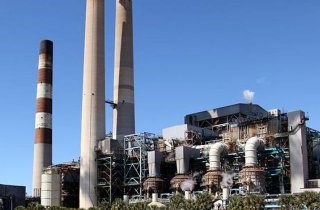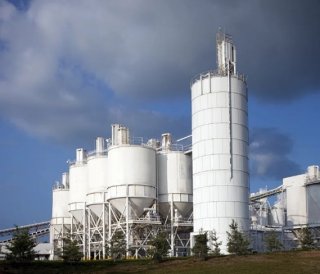About the Sector Policies and Programs Division (SPPD)
Who We Are
SPPD is one of the five Divisions within EPA’s Office of Air Quality Planning and Standards (OAQPS). We are the Center of Excellence on stationary source air pollution, recognized for the leadership and expertise of its people. SPPD’s mission is to protect human health and the environment by providing clean air regulations that reduce emissions and health impacts from cancer-causing air pollutants from stationary sources such as power plants, paper mills, and lead smelting operations.
Collaborating across the Agency, SPPD leads the development of emissions control strategies that rely on a combination of market-driven technology and practices, alternative compliance options, and incentives to achieve public health and environmental goals. Working with state, tribal, and local regulators, industry, small businesses, communities, and other stakeholders, SPPD staff develop nationwide regulatory standards and policy guidance that balance public health protection, economic stability, and legal considerations.
What We Do
SPPD is comprised of engineers, scientists, communication specialists, and environmental protection specialists. Our staff routinely collect, review, and analyze air emissions data, control options, and cost data to support the development or revision of national air emissions regulations for stationary sources.
The division’s eight groups develop regulatory actions for all major source sectors of the economy that emit air pollutants such as air toxics, greenhouse gases, and criteria pollutants. Select one of the groups below to learn more about their responsibilities:

|
SPPD Groups

Energy Strategies Group (ESG)ESG staff develop rules and policies which cover a wide range of air pollution control strategies and regulations to reduce air pollution from the power and energy production sector including these examples of our work: electric utilities, energy engines, and combustion turbines. |
Fuels and Incineration Group (FIG)
FIG staff develop rules and policies for industries that produce fuels, such as coal, crude oil and natural gas. FIG also develops rules and guidelines for the waste management industry relying on the most currently available control technologies, and engineering/scientific expertise. |
Metals and Inorganic Chemicals Group (MICG)
Metals and Inorganic Chemicals Group (MICG)MICG staff develop rules and policies which effectively control air pollutant emissions from the metals and inorganic chemicals industrial sectors. Some examples of our regulatory work include: integrated iron and steel manufacturing, coke ovens, primary and secondary non-ferrous metals production (e.g., Aluminum, Lead, Copper, Zinc, Magnesium), lead acid battery manufacturing, nitric acid production and hydrochloric acid production. |

Measurement and Policy Group (MPG)MPG staff develop the electronic reporting, monitoring, and testing requirements for all regulated stationary sources. The public are able to review the associated air emissions data and reports. To support the electronic reporting requirement in SPPD’s regulations, MPG maintains the Electronic Reporting Tool (ERT) and the Compliance and Emissions Data Reporting Interface (CEDRI). Additionally, MPG is responsible for the EPA’s Compilation of Air Emission Factors (AP-42) and WebFIRE, the agency’s publicly accessible database for air emission factors and other reports. |

Minerals and Manufacturing Group (MMG)MMG staff develop rules and policies that aid in the implementation of effective control strategies and associated regulatory actions for the mineral processing (e.g., cement manufacture, brick and structural clay manufacture). These actions also impact specific manufacturing sectors not covered by other groups in SPPD (e.g., surface coating of large appliances and boat manufacturing). MMG is also responsible for regulating sterilizers at hospitals and sterilization facilities. |

Natural Resources Group (NRG)NRG staff develop rules and policies which impact emission sources like: municipal solid waste landfills, and publicly-owned wastewater treatment facilities. NRG also leads agricultural regulatory and policy actions related to concentrated animal feeding operations, leather finishing operations, and vegetable oil production. |

Policy and Strategies Group (PSG)PSG staff develop cross-cutting rules and policies that affect a wide range of industrial sectors including requirements during startup, shutdown and malfunction and source classification via the General Provisions and coordinates the division’s collaboration with state, tribal, local regulators, industry, small businesses, communities, and other stakeholders. PSG staff also ensures consistency and coordination among rules and policies across SPPD. Additionally, PSG manages modifications to the list of hazardous air pollutants (HAP). |
Refining and Chemicals Group (RCG)
RCG staff develop rules and policies which aid in the implementation of effective control strategies and associated regulatory actions for the petroleum refining, petrochemical and chemical manufacturing sector. Across our nation, there are many refineries and chemical plants that produce products that we use in our daily lives. RCG is responsible for understanding the potential for air pollution from sources such as miscellaneous coating manufacturing, polymers and resins industries and miscellaneous organic chemical manufacturing and ensuring that the regulations that apply to these facilities are effective. |
